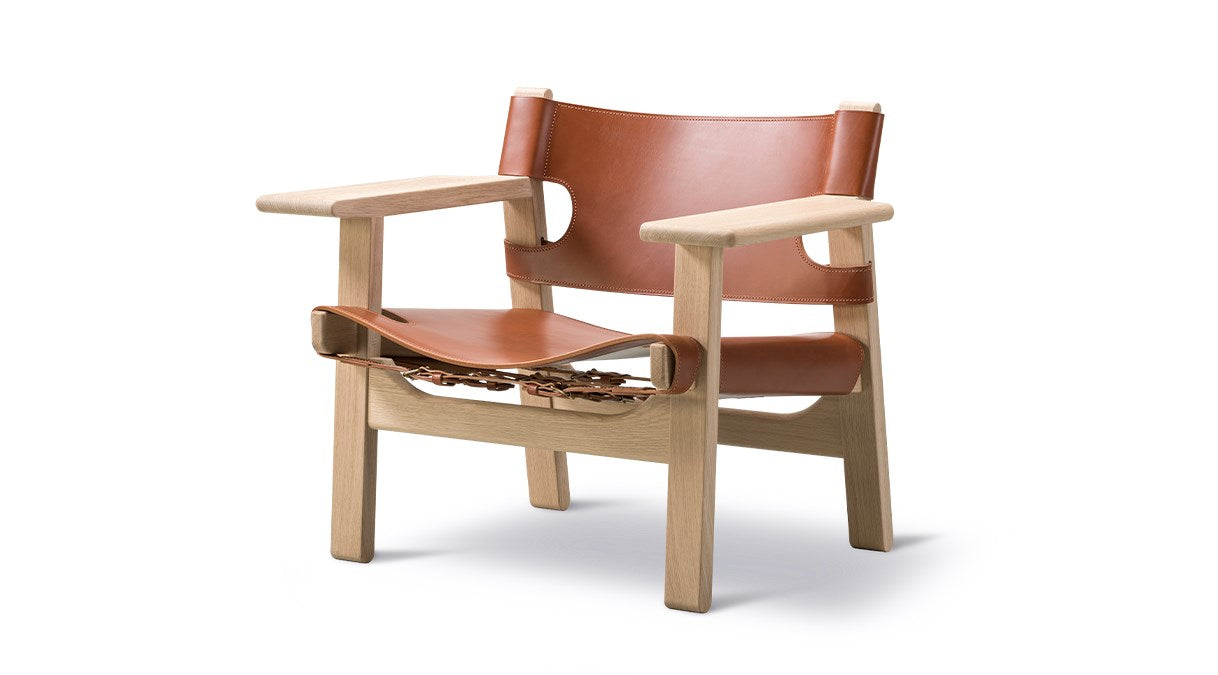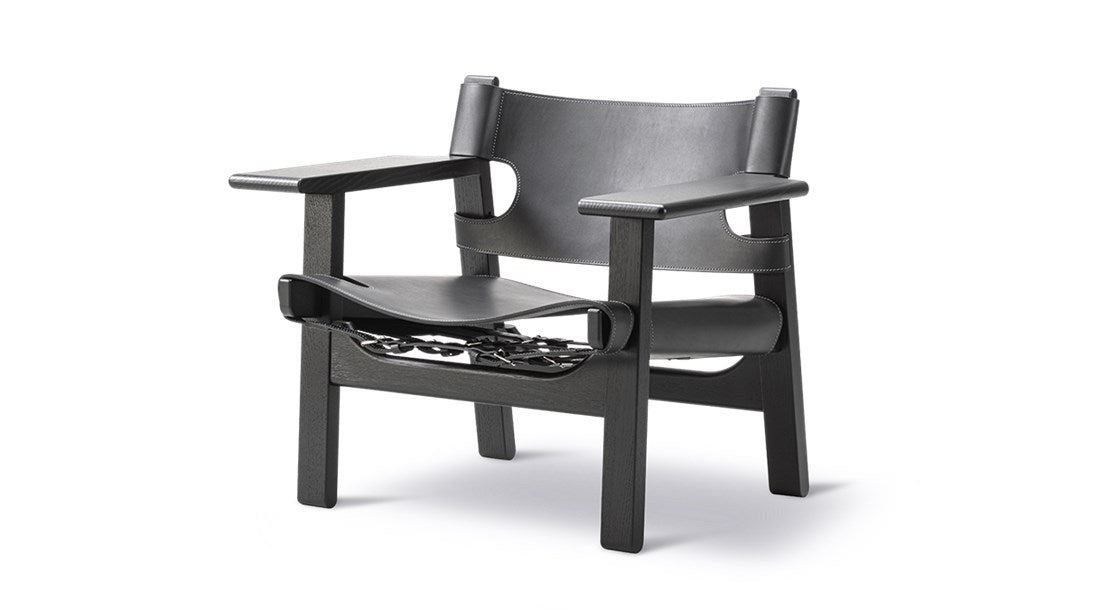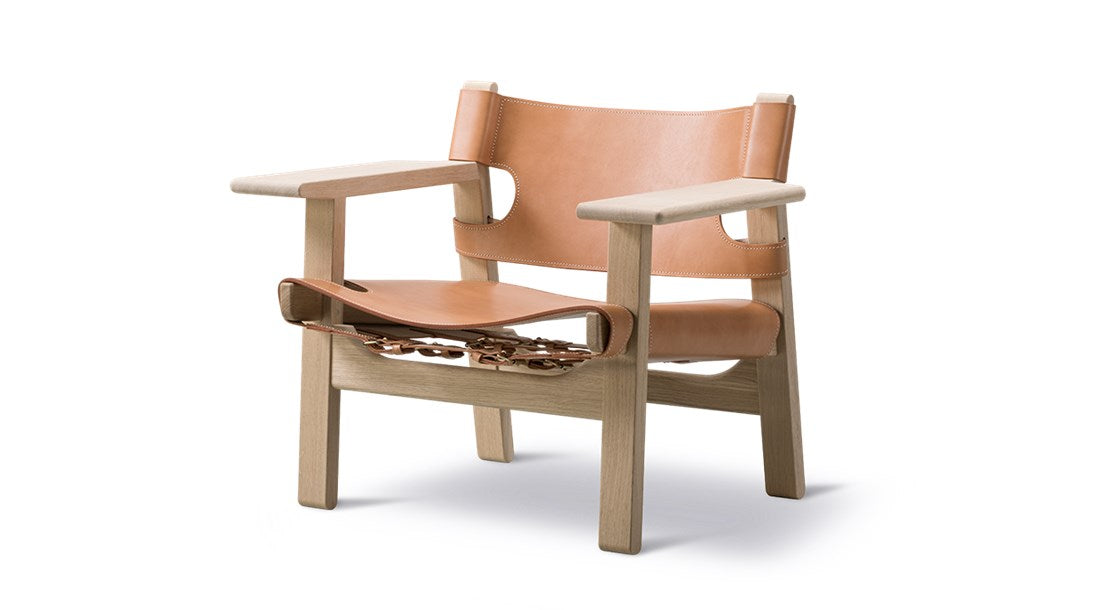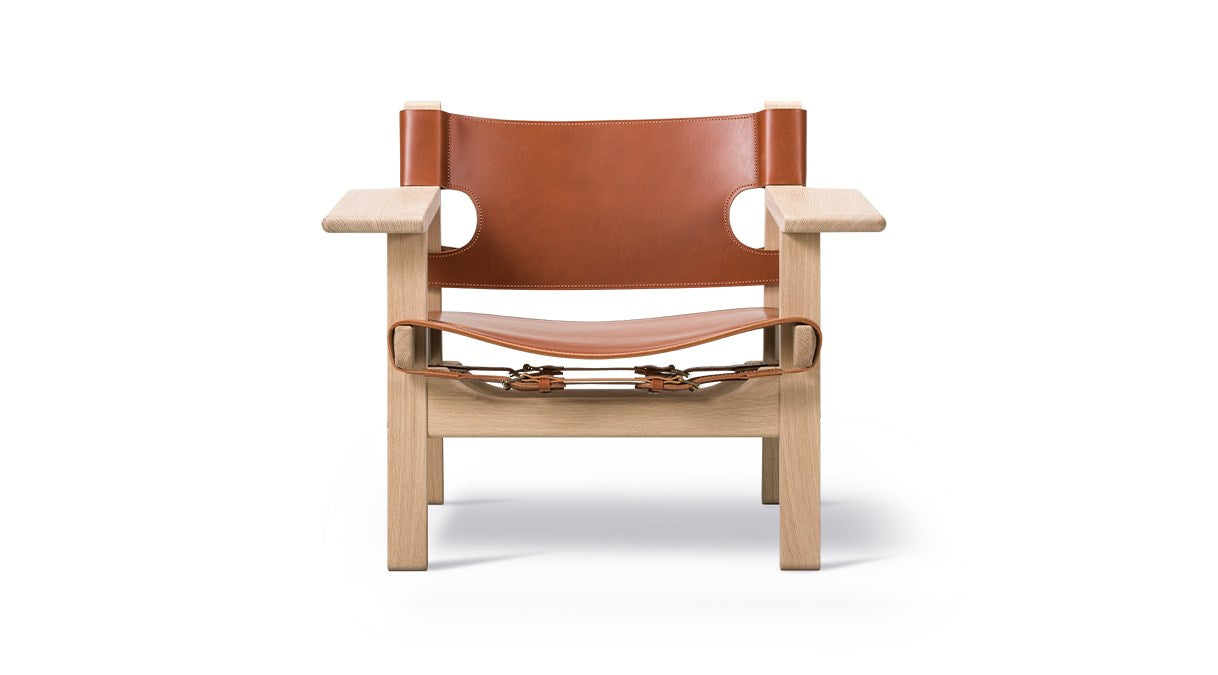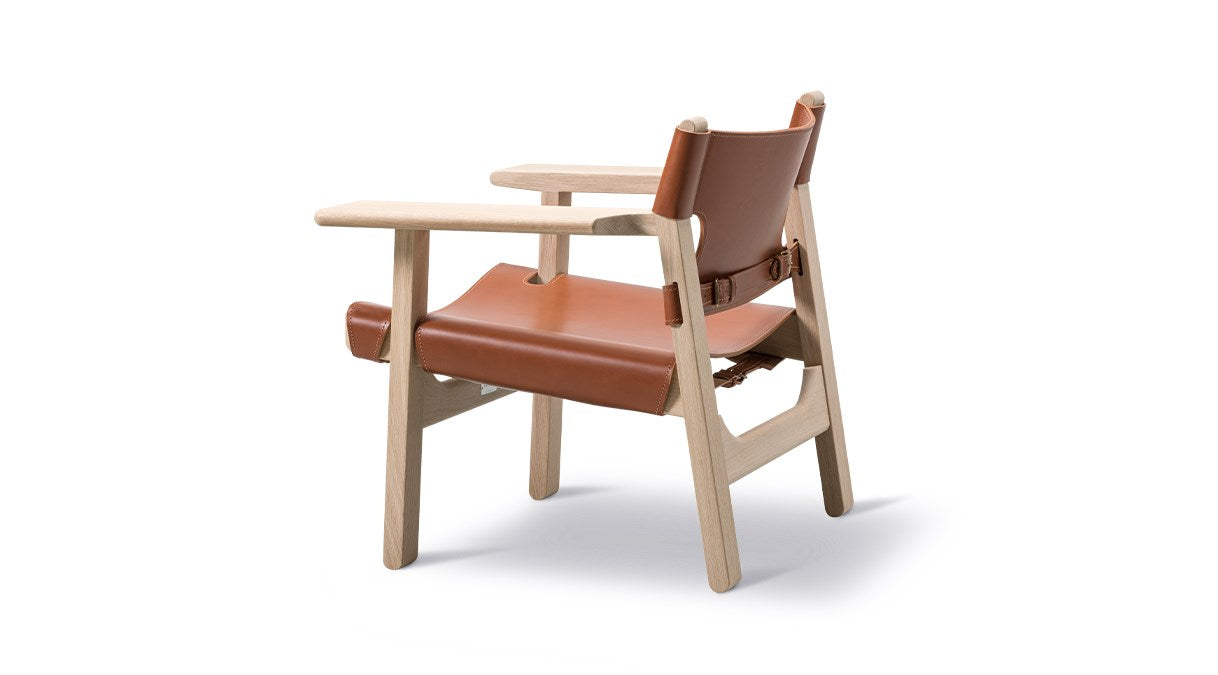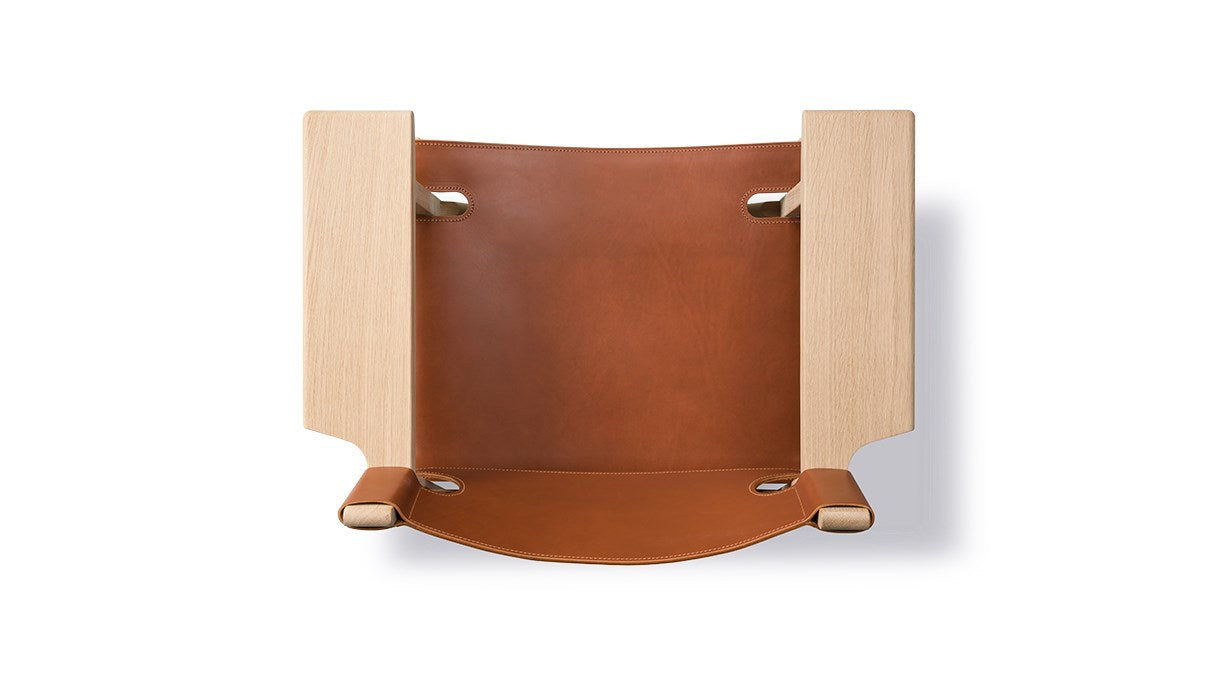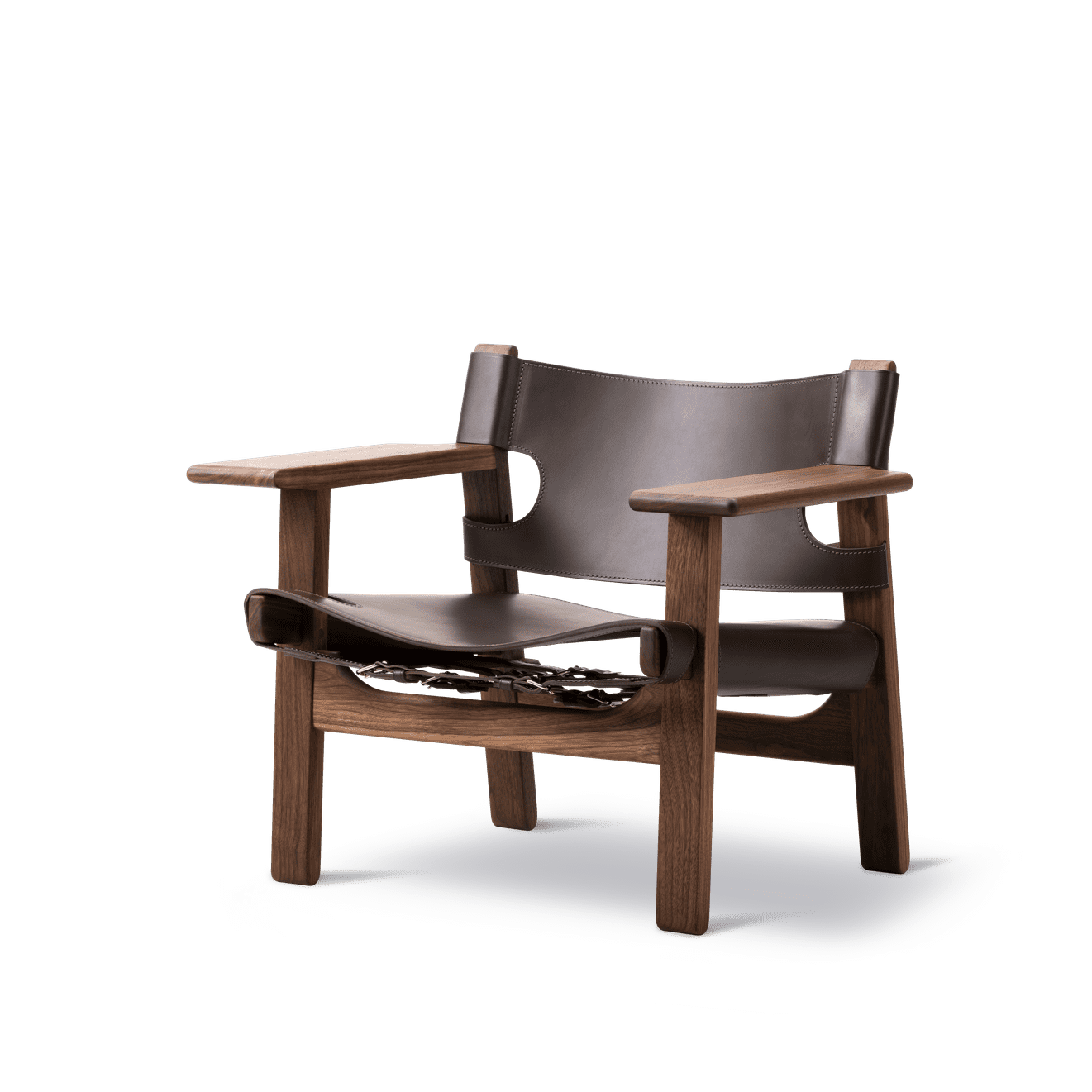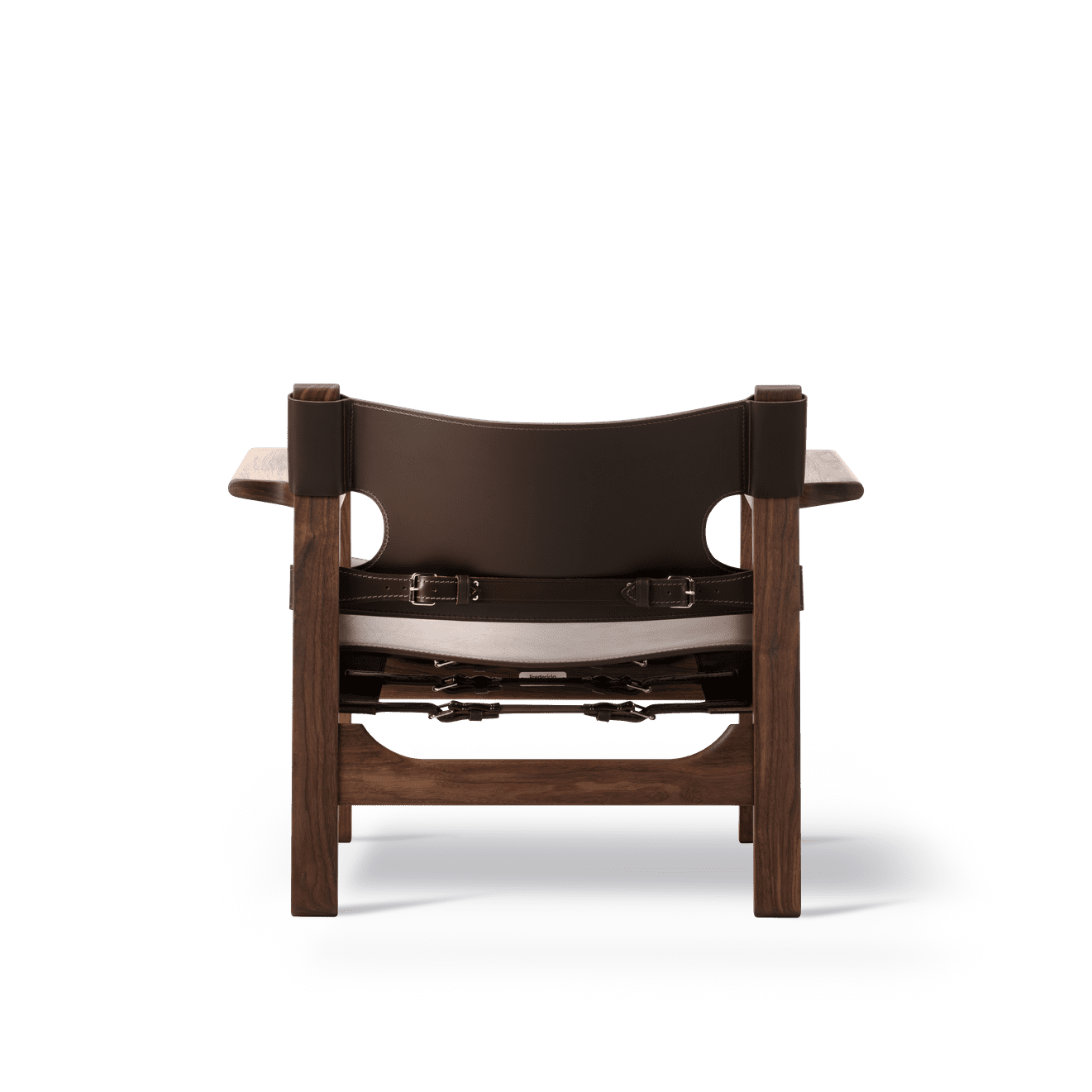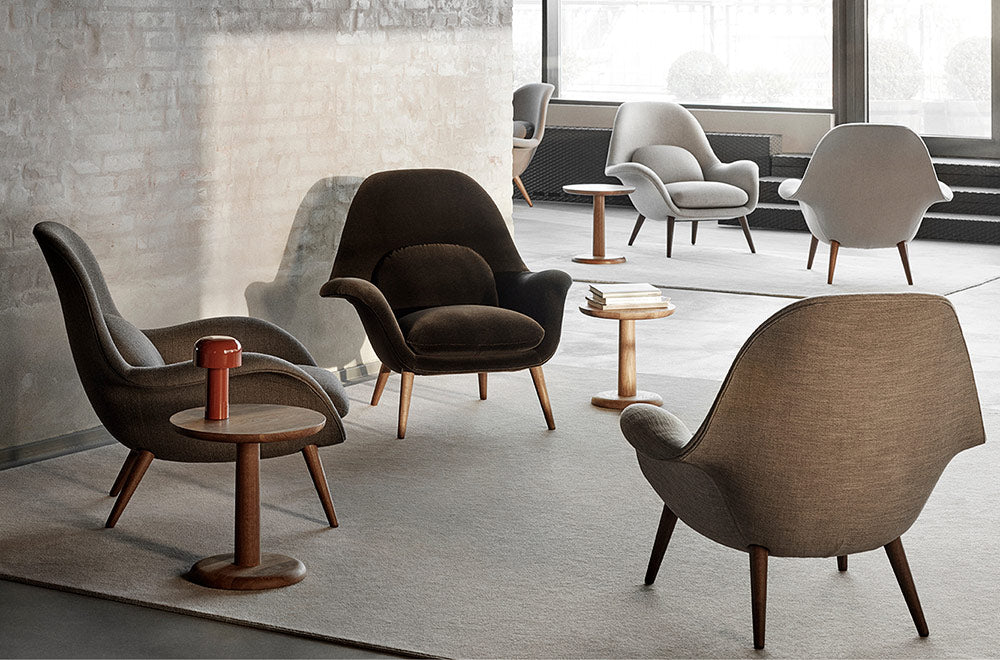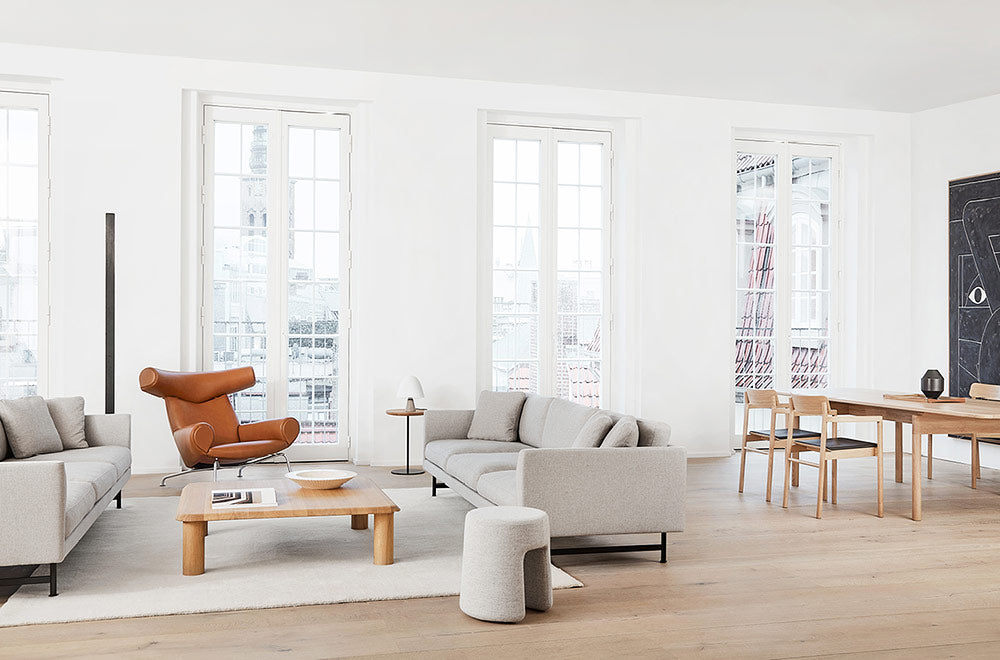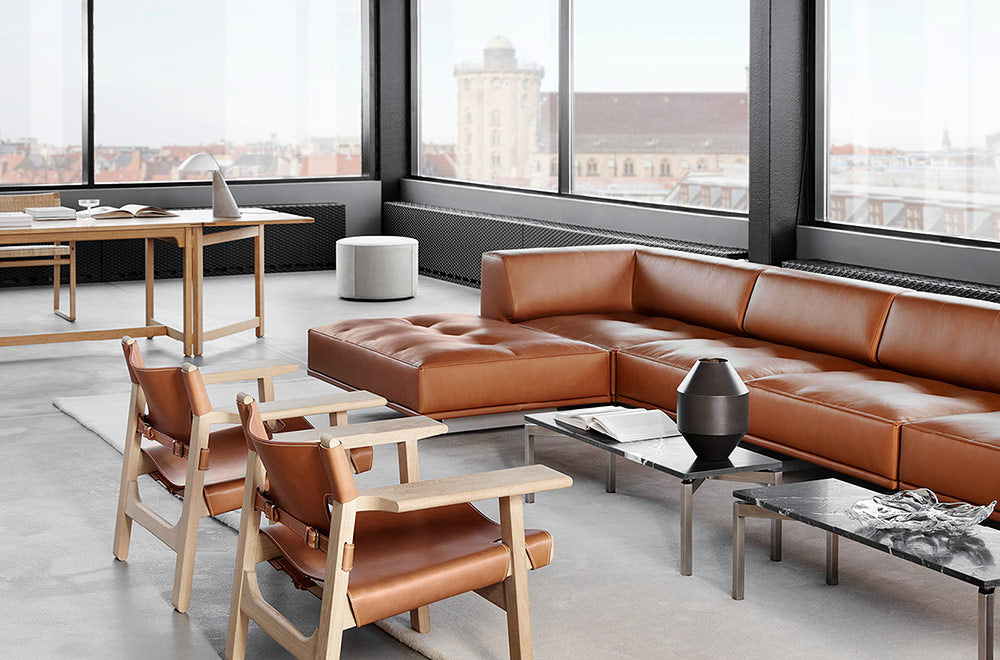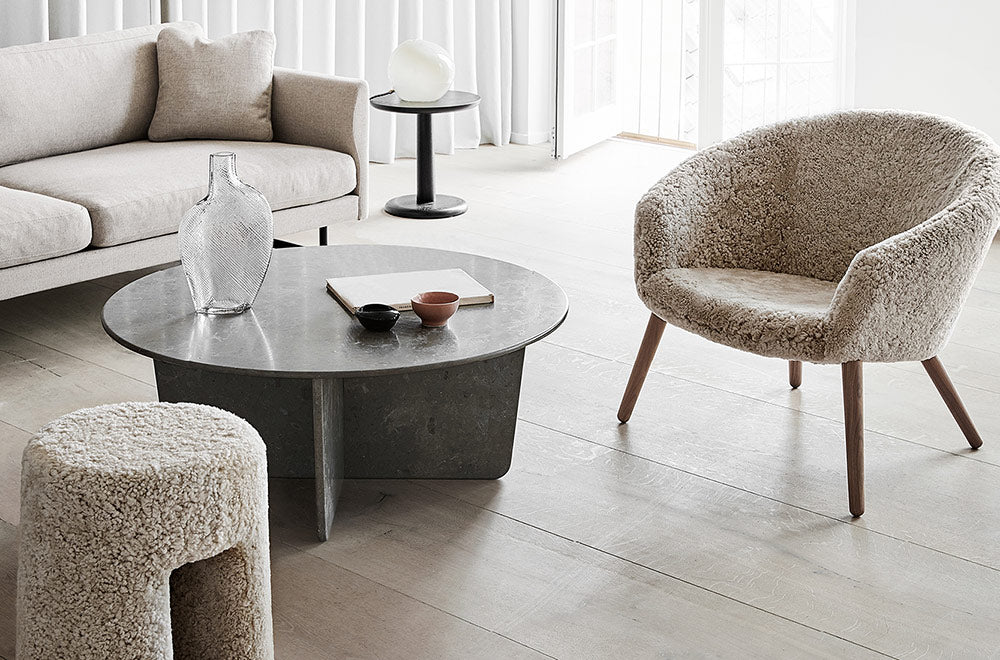With the Spanish Chair Mogensen expanded upon his work with solid oak and saddle leather. The chair was launched in 1958 as part of an innovative living space exhibition, in which all tables were removed from the floor to create an open living space.
It’s ironic that something called The Spanish Chair would become synonymous with Danish design. However, the origin of its name and its distinctive aesthetic render the chair worthy of its reputation.
Børge Mogensen drew much of his inspiration from traditional chairs of other cultures, such as English Windsor chairs and the Shaker movement in America. In Spain, a traditional way of making furniture involved the use of sturdy leather to construct the seat as part of a wooden structure – hence the name of what went on to become one of Mogensen's most celebrated designs.
W: 82,5 cm D: 60 cm H: 67 cm Wt: 12 kg Cbm: 0.41 cbm Sh: 33 cm
The Spanish Collection
The Spanish Chair - Model 2226 Easy chair
The Hunting Chair - Model 2229 Easy chair
The Spanish Dining Chair - Model 3238
Timber: Oak black lacquered, Oak soap, Oak clear oil, Oak light oil, Oak smoked and oiled, Walnut oiled
Saddle leather: Vegetable tanned natural saddle leather, Black coloured saddle leather, Cognac coloured saddle leather
For more information on available finishes, download the 'Fredericia Upholstery and Surfaces Overview' from the Resources tab.
- - Download The Spanish Chair Architect file package
- - Download The Spanish Chair - Model 2226 Image
- - Download The Spanish Chair Cognac Image
- - Download The Spanish Chair Image
- - Download The Spanish Chair - Model 2216 Image
- - Download The Spanish Chair - Model 2666 Image
- - Download Piloti stone table - Model 6750 Image
- - Download The Spanish Chair - Model 2226 Product Sheet
- - Download The Spanish Chair - Model 2229 Product Sheet
- - Download The Spanish Chair - Model 3238 Product Sheet
Børge Mogensen (1914-1972) was one of the most important furniture designers of his generation. Having started as a cabinetmaker, like many other designers, he developed into an accomplished furniture designer who created functional and affordable furniture for the everyman. Mogensen studied at Copenhagen school of Arts and Crafts from 1936-1942 under the watchful eye of Kaare Klint as his mentor. After completing his studies he initially went on to work with Klint, from whom he learnt to produce simple and functional furniture. Later on, Mogensen also succeeded his former mentor as designer at the Museum of Decorative Arts in Copenhagen when Klint died in 1954.









